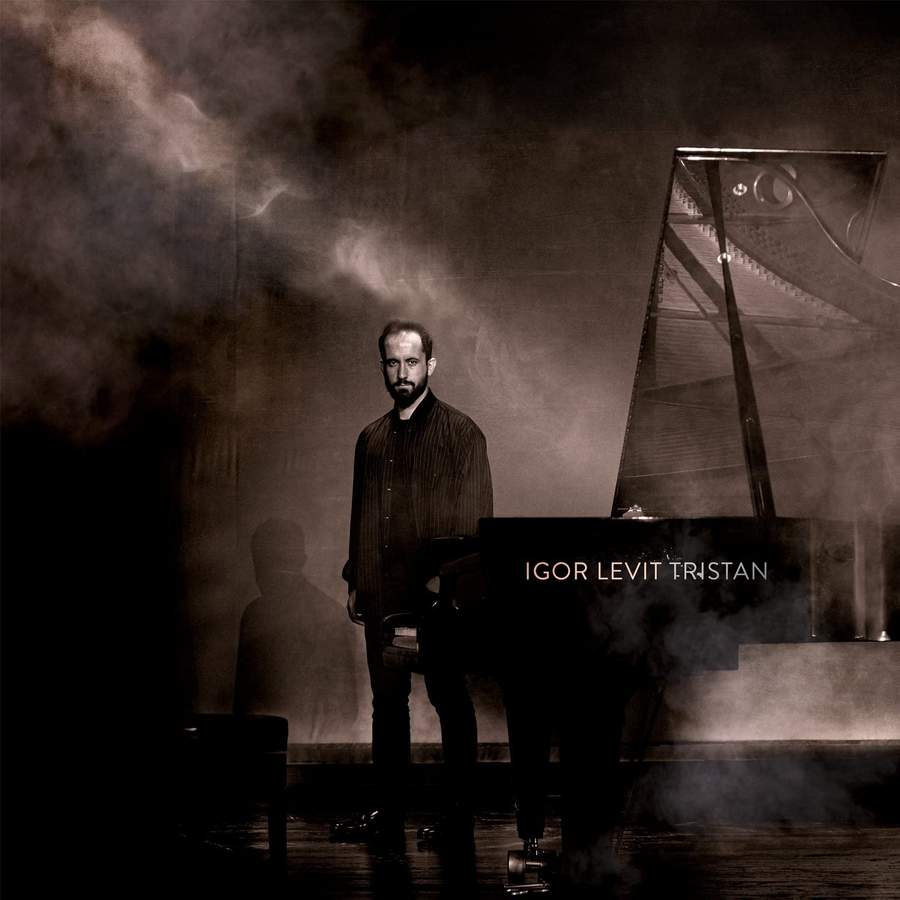Igor Levit: Tristan
View record and artist detailsRecord and Artist Details
Genre:
Orchestral
Label: Sony Classical
Magazine Review Date: AW22
Media Format: CD or Download
Media Runtime: 101
Mastering:
DDD
Catalogue Number: 19439 94348-2

Tracks:
| Composition | Artist Credit |
|---|---|
| (3) Liebesträume, Movement: No. 3 in A flat, O lieb, so lang du lieben kannst |
Franz Liszt, Composer
Igor Levit, Piano |
| Tristan - Preludes for Piano, Orchestra and Tapes |
Hans Werner Henze, Composer
Franz Welser-Möst, Conductor Igor Levit, Piano Leipzig Gewandhaus Orchestra |
| Tristan und Isolde, Movement: Prelude |
Richard Wagner, Composer
Igor Levit, Piano |
| Symphony No. 10, Movement: Adagio |
Dmitri Shostakovich, Composer
Igor Levit, Piano |
| (12) Etudes d'exécution transcendante, Movement: No. 11, Harmonies du soir |
Franz Liszt, Composer
Igor Levit, Piano |
Author: David Fanning
Of all Igor Levit’s concept-based albums, this strikes me as the most problematic. He builds it around two substantial items, themselves only tangentially related. Hans Werner Henze’s 1973 six-movement, 50-minute homage to Wagner’s Tristan und Isolde for piano, orchestra and tape is the main event. This is an ambitious, in many ways typical, postmodern, polystylistic product of the early 1970s, following closely on Schnittke’s First Symphony, Tippett’s Third and many other works in the aftermath of Berio’s Sinfonia. Confronting Henze’s protracted atonal ruminations on Wagner’s music drama are quotations from Brahms and Chopin, and numerous further allusions: ‘signposts’ as Henze called them, but ones that leave it to the listener to decide where they might be pointing. Personal and contemporary socio-political tragedies underlie the general tone of agonised alienation, while flexatone, foghorn and other paraphernalia augment the orchestral palette. In the finale a recording of a child reading a Tristan-related French poem translated by Hilaire Belloc again fits in with the fashion of the times. Maybe it’s a matter of taste whether or not you cringe at this point. But Henze certainly lets the pressure dip dangerously low in this long movement, with the return of rather inconsequential piano lines that may be fine for a provisional, preludial tone at the outset but not so much for holding the listener’s attention 40 minutes further on.
The fine DG recording with the composer conducting and Homero Francesch at the piano is still available as a download and on YouTube. Levit and Welser-Möst add a good six minutes to its duration, and this is largely due to a more leisurely exploration of the unmetred piano-writing (much of the orchestral contribution is tied to the duration of the pre-recorded electronic tapes). Still, whatever the talking points, it is good that they have brought this imposing score back to public attention.
Shunning more obvious Tristan-related pieces, such as by Debussy or Szymanowski, Levit offers as a principal makeweight Ronald Stevenson’s transcription of the Adagio from Mahler’s Tenth Symphony. The issue here, apart from dubious relevance to Tristan, is the music’s heavy dependence on sustained string tone, which makes the piano version sound more redundant than revelatory. One way to circumvent the problem would have been to prioritise harmonic ebb and flow. Instead Levit insists on a glacial tempo – fine for an orchestra but counterproductive on the piano. The opening viola theme is already ineffective, and voice-leading is periodically obscured thereafter, damaging the harmonic logic. There are times, to be sure, when Henze sounds a little like Mahler, but to make Mahler sound like Henze is not, I fear, a compliment.
Levit takes the opening bars of the Wagner/Kocsis Tristan Prelude about as slowly as they can go without falling apart, but thereafter he does allow enough ebb and flow to build towards an impressive architectural whole. The two Liszt pieces that bookend the CDs are again rather to one side of the Tristan theme. A more adventurous and relevant choice would surely have been Stevenson’s two Tristan recompositions. Never mind. The booklet note, to its credit, does not force the point, and Levit, to his credit, doesn’t milk Liszt’s warhorses for more than their worth.
I can imagine a richer piano sound overall but it is certainly clear and bright enough.
Discover the world's largest classical music catalogue with Presto Music.

Gramophone Digital Club
- Digital Edition
- Digital Archive
- Reviews Database
- Full website access
From £8.75 / month
Subscribe
Gramophone Full Club
- Print Edition
- Digital Edition
- Digital Archive
- Reviews Database
- Full website access
From £11.00 / month
Subscribe
If you are a library, university or other organisation that would be interested in an institutional subscription to Gramophone please click here for further information.




